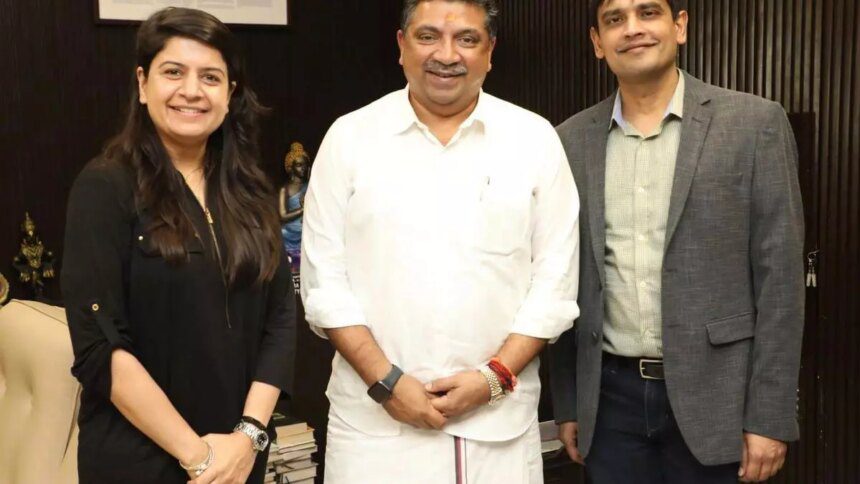As Sam Altman, the CEO of OpenAI, wrapped up his visit to New Delhi during an international tour, a delegation of OpenAI executives made their way to Chennai for a series of activities.
On Friday, OpenAI’s Vice President of Engineering, Srinivas Narayanan, along with Pragya Misra, the Public Policy and Partnerships Lead for India, met with Tamil Nadu’s IT Minister, Palanivel Thiagarajan. They also visited IIT Madras, where Narayanan delivered a special lecture.
Discussions with the minister centered around the potential of OpenAI’s models to enhance the efficiency of citizen services in the state, as well as the role these technologies could play in equipping the youth of Tamil Nadu with essential AI skills. The minister shared on LinkedIn, “Our conversation covered a range of topics, focusing on implementing OpenAI’s models to expedite e-Sevai service delivery at over 30,000 centers and collaborating with the ICT Academy to ensure our youth gain a competitive edge in the rapidly evolving field of AI.”
Sources within the state indicated that the visit was relatively informal, primarily addressing how OpenAI’s platforms could be utilized by governments to improve governance effectiveness. Previously, Tamil Nadu established a partnership with Google to enhance AI skills among its youth through the Naan Mudhalvan initiative, complemented by the establishment of the Tamil Nadu AI Labs in Chennai.
Srinivas Narayanan, who oversees teams responsible for developing products like ChatGPT and the Developer API and is an alumnus of IIT Madras, also spoke with students of the institute.
During a fireside chat with Professor B. Ravindran from IIT Madras, Narayanan acknowledged advancements surrounding DeepSeek while reaffirming OpenAI’s commitment to its vision of achieving Artificial General Intelligence (AGI). He addressed speculations regarding significant cost differences between OpenAI’s models and those of competitors, noting, “The price curve has been consistently declining every few months.”
Narayanan also reflected on OpenAI’s engagement with India, particularly in light of CEO Altman’s recent visit. He dismissed claims of a dramatic shift in Altman’s perception of India, highlighting that discussions with the IT Minister illustrated OpenAI’s commitment to supporting India’s AI initiatives across hardware, foundational models, and applications. “As the world’s largest democracy, India offers vast potential for leveraging AI in ways that benefit its citizens,” he stated.
Concerning the influence of AI on employment, particularly in software development, Narayanan assured that AI would not fully replace software engineers. Instead, it would automate routine coding tasks, enabling engineers to focus on more complex problem-solving. He noted that the evolution of AI would progressively allow it to manage increasingly sophisticated tasks.
In addition to these topics, Narayanan emphasized OpenAI’s approach to AI safety and risk assessment during his lecture.










